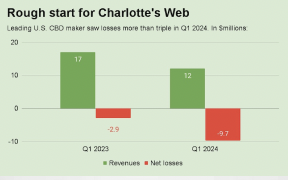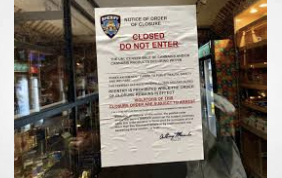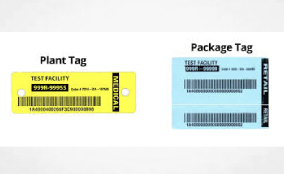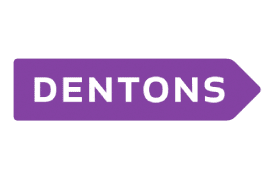- Dentons Welcomes Maine Cannabis Lawyer Hannah King
Federal
Department of Justice to Address Cannabis “In the Days Ahead” – In response to questions from Sen. Brian Schatz (D-HI) regarding guidance for federal prosecutors on cannabis enforcement priorities, US Attorney General Merrick Garland announced that the Department of Justice is “examining a range of issues that relate to marijuana and its production, sale, and use, and . . . intend[s] to address these issues in the days ahead.” Echoing similar statements he has made in the past, Garland also reiterated that “enforcement resources are not put to their best use prosecuting nonviolent, low-level marijuana offenses.”
Congress Discussing Bipartisan Omnibus Cannabis Bill – According to Representatives Ed Perlmutter (D-CO) and Dave Joyce (R-OH), “high-level” discussions are underway regarding a new bipartisan cannabis package that could be introduced this year. Issues that could be addressed in the package include banking, expungements, veterans’ medical cannabis access, research expansion, access to Small Business Administration programs, and broader drug sentencing reform.
Republican Sponsor of Federal Legalization Bill Wins Primary Challenge – Rep. Nancy Mace (R-SC), the Republican House sponsor of the States Reform Act, prevailed in a primary challenge over an opponent who challenged her focus on cannabis reform. According to Brent Gardner, chief government affairs officer of Americans for Prosperity, Mace’s victory shows that “voters want Congress to adopt cannabis reform.”
Congress Proposes to Include Marijuana-related Protections in FY 2023 Spending Bills – The spending bill for the Department of Homeland Security (DHS) limits the use of federal funding to deny benefits and protections under immigration law based on marijuana-related conduct; however, immigrants who work in the commercial marijuana market might remain legally unprotected. The Financial Services and General Government’s (FSGG) spending bill not only adds language to safeguard financial institutions that work with state-legal marijuana or hemp businesses, but also prohibits the use of federal funds to penalize media broadcasters for airing cannabis ads in jurisdictions where cannabis-related products are allowed. Lastly, in the appropriations bill that allocates funding for US Department of Agriculture (USDA), the bill states that USDA cannot use federal funds to interfere in the processing, transportation or sale of hemp, which was federally legalized under the 2018 Farm Bill.
Social Media Takes Wall Street Journal to Task for Op-Ed Blaming Shootings on Marijuana – A Wall Street Journal op-ed suggesting that marijuana use is related to increasing violent crimes was not well received on social media. Among other evidence, the op-ed noted that in several mass shootings, including Parkland High School, the shooters were marijuana users. But Twitter users countered that the op-ed was scapegoating marijuana when it should be advocating for stricter gun control, with many tweets referencing “Reefer Madness,” the 1936 movie famous for its fearmongering and misinformation about cannabis use. Some tweets pointed out that the Netherlands, which decriminalized marijuana, faces no similar concern about mass shootings, while others expressed frustration at those blaming violent movies and marijuana instead of “[putting] the blame where it belongs: guns.”
States
DE – After Delaware Governor John Carney (D) vetoed a reform bill legalizing possession of up to one ounce of marijuana by adults for recreational use last month, the original House Bill 371 sponsor, Rep. Ed Osienski (D), led an effort to override the veto, but the bid failed to attain the three-fifths majority required to override the veto. Failure to legalize marijuana in the state would thwart efforts to establish a state-run marijuana industry despite a majority of the state’s residents supporting legalization. Opponents of the bill reiterated their concerns about marijuana use among young adults, exposure to business owners’ liabilities, and increased traffic deaths and injuries.
IL – A county judge lifted an order that prevented Illinois officials from expediting new licenses for cannabis craft growers. Current license holders—which were prevented under the order from moving forward with any plans—may now resume their efforts to open for business.
NM – Together with a coalition of patients, New Mexico’s largest cannabis company filed a class action against seven health insurance companies for refusing coverage of medical cannabis costs for qualifying patients. The lawsuit—which is largely based on the state’s Behavioral Health Services Equity Act—seeks to prove that medical cannabis is a recognized treatment for behavioral and mental health conditions that must be covered by insurers.
PA – A state court in Pennsylvania halted a recall of medical cannabis vape products issued earlier this year by the state Department of Health. Though the state plans to appeal, it recognizes that it “cannot prevent grower/processors from distributing previously recalled products.” Following the court’s decision, Jushi Holdings issued a press release announcing that its products will be “back on the shelves” within the coming days.
Hemp/CBD
DC Circuit Court Dismisses Two Hemp Appeals – The DC Circuit Court of Appeals this week dismissed two prominent appeals from cases brought by the Hemp Industries Association and member RE Botanicals challenging the US Drug Enforcement Administration’s authority to regulate aspects of the federally legal crop. In both opinions, the judges stated that the appellants had failed to show how the DEA’s policy had injured them. An attorney for the hemp parties stated that they are “evaluating next steps.”
FDA’s Science Board Considers Challenges of CBD as a Dietary Supplement – The Science Board of the FDA met on June 14 to consider the “challenges in evaluating the safety of dietary supplement and food ingredients with predicted pharmacological activity, utilizing cannabinoids as a case study.” The Science Board is an advisory panel composed of nutrition and drug-safety experts. While the panel itself was only informational, many CBD companies submitted public comments to regulators.
ASTM Provides New Standard for Hempseed Food Products – The American Society for Testing and Materials provided a new international standard for hempseed food products which creates “credible and achievable specifications for food-grade hempseed products.” Products covered under the new standard, soon to be published as D8440, include dehulled hempseed, toasted hempseed, hempseed oil and hempseed protein products.
International
Luxembourg Allows for Home Cultivation and Public Use of Cannabis – Luxembourg has reduced criminal penalties for possession of cannabis in public and has completely legalized the cultivation of up to four plants within one’s home, so long as they stay out of public view. The country has also legalized the use of cannabis within the home. Many view this as a first step towards legalization, though it falls short of earlier proposals that were more expansive.
Germany Moves Towards Adult-Use Cannabis – The German government announced plans to legalize adult-use cannabis for sales in dispensaries in the future. A series of hearings will take place this month where legal, medical and legislative experts will testify regarding the issue of legalization and potential approaches.
EFSA Pauses Novel Food Evaluations of CBD Pending New Data – The European Food Safety Administration is stopping the clock on evaluating the safety of cannabidiol as a novel food, citing a number of data gaps. Prof. Dominique Turck, chair of the Novel Food and Allergens Data Panel, said: “We have identified several hazards related to CBD intake and determined that the many data gaps on these health effects need filling before these evaluations can go ahead. It is important to stress at this point that we have not concluded that CBD is unsafe as food.”
Thailand – Thailand legalized the cultivation and possession of marijuana for medical and industrial uses on June 9, becoming the first Asian country to do so. But recreational use of marijuana is still not allowed in the country and public smoking is punishable with a three-month jail sentence and a $780 fine. The new legalization was created with strong economic objectives in mind, including a focus on promoting equitable ownership and employment opportunities in the cannabis industry.
Hong Kong – Lawmakers stated that about one-third of the CBD products in the local market that have been tested since 2019 have been found to contain small traces of THC, which is illegal in Hong Kong. The government has long adopted a firm zero-tolerance policy for THC due to health hazard and addiction concerns. Meanwhile, mainland China banned cannabis cosmetics in 2021.
Morocco – Morocco, the world’s leading producer of illicit cannabis, has decided to establish a regulatory agency to control all stages of the production chain for the cultivation of cannabis for medical use, including setting up the first processing and manufacturing cooperatives. This decision follows the legalization of the growing of cannabis for medical and industrial purposes in three northern provinces and possibly others depending on the interest of national and international investors, according to the Ministry of the Interior. Although Morocco’s expanding cannabis industry has provided new jobs and tax revenues, the country’s strict legal restrictions are hindering Moroccan companies from exporting to international markets.
Israel – Israel-based InterCure Ltd. partnered with San Francisco-based Cookies to develop a new 1,000-square-meter Cookies pharmacy in Israel, supposedly the largest medical cannabis pharmacy in the world. Both Alexander Rabinovicth, InterCure’s CEO, and Parker Berling, Cookies’ president, expressed excitement about serving suffering patients with high-quality products.
Canada – A Health Canada official stated that the agency will not implement the proposed change in regulations to increase the possession limit from 5 to 48 standard-sized beverage cans for cannabis-infused beverages before the fall of 2022. Although shares of the Cannabis ETF, which includes Canada-based cannabis companies, is down 53.4 percent so far this year, it increased 2.3 percent in light of this news.
Business
Springbig and Tuatara Capital Acquisition Corporation Announce Completed Business Combination – Springbig, which offers cannabis retailers and brands a customer loyalty platform and marketing automation solutions, and Dentons-represented Tuatara Capital Acquisition Corporation (TCAC) announced completion of their business combination, pending approval by a majority of the TCAC shareholders. Upon closing, TCAC will change its name to SpringBig Holdings, Inc. and will trade on the Nasdaq Global Market under SBIG.
Michigan Marijuana Grow Facility Gets Sizable Energy Rebate – Ater building a 44,000-square-foot building in a Lawrence, MI, industrial park using energy-efficient equipment, 305 Farms, a marijuana grow facility in Michigan, received an $849,000 energy rebate from Consumers Energy—one of the largest rebates issued to a cannabis company by the public utility. Matt Peon, CEO of 305 Farms, commented that rebates are a big part of the company’s decision-making process, incentivizing the company to build power-saving campuses. The company will continue to pioneer such environmentally conscious efforts in the future.
Verano Opens 100th Cannabis Dispensary in the US – Zen Leaf Wynnewood, Verano Holdings Corp.’s 100th affiliated dispensary in the US, began serving medical patients in Pennsylvania on June 3. George Archos, Verano’s chief executive officer, expressed excitement for “this historic day” by thanking both Verano employees and loyal customers. The dispensary sells cannabis therapeutics in forms such as topicals and vapes, and allows customers to order ahead online for in-store or curbside pickup.
Medical/Health
Legalization of Nonmedical Cannabis Linked with Decreased Use of Alcohol, Cigarettes and Nonprescribed Pain Relievers, Study Reports – A new study in the Journal of Adolescent Health about marijuana’s spillover effects suggests that the legalization of nonmedical cannabis may lead to a decrease in use of alcohol, cigarettes and nonprescribed pain relievers but an increase in e-cigarette use. Additionally, the study found that the prevalence of substance use other than cannabis was higher among both occasional and frequent cannabis users compared to nonusers, but that associations between cannabis and occasional, frequent and heavy episodic drinking (HED) weakened over time among individuals ages 21-25—a finding that requires further research.
Marijuana Legalization Correlates with Less Teen Marijuana Use – Similar to Michigan’s Monitoring the Future (MTF) survey which found a decline in the use of marijuana and other controlled substances among 8th graders, 10th graders and 12th graders, Colorado’s Healthy Kids Colorado Survey also found that high school students were 35 percent less likely to use marijuana compared to prior years. According to cannabis advocates, regulated access for adults minimizes the risk of adolescent marijuana use. One study published in the Journal of the American Medical Association suggests that neither recreational marijuana laws nor medical marijuana laws increase youth marijuana use, while another paper used data from the Youth Risk Behavior Survey (YRBS) to find that the adoption of marijuana laws were associated with an 8 percent decrease in marijuana use among high school students.
Study Finds Little Evidence that Mild Cannabis Use Impairs Physical Health – A study published in the journal Drug and Alcohol Dependence debunked associations between cannabis use and reduced exercise capacity and appetite loss, finding that both stemmed not from cannabis use, but from genetic and environmental factors. The study used data from a co-twin control study involving monozygotic twins and dizygotic twins in order to control for shared genetic and environmental factors when studying the physical health effects of cannabis use. However, participants were only adults ages 25-35 who were less obese than the average American and used cannabis once a week on average, which poses limitations in generalizing to other age, obesity and cannabis-use groups.
Dentons Speaks
Legal 500 Rankings – Dentons’ Cannabis Group earned a Tier 1 designation in the 2022 edition of The Legal 500 US. Additionally, Chicago cannabis partners Katie Ashton and Eric Berlin were named “Leading Lawyers.” Senior managing associate Joanne Caceres and managing associate Lauren Estevez were recognized as “Rising Stars.”
Dentons Announces New Cannabis Partner – Hannah King has joined Dentons Bingham Greenebaum as a partner in its Cannabis Law, Litigation and Corporate practice groups. King, who is based in Portland, Maine, helped draft and pass Maine’s Marijuana Legalization Act and has advised hundreds of cannabis businesses.
Joanne Caceres presented at the Illinois Women in Cannabis event “You Won a License (Finally?!) – Now What?,” held on June 9 at Chicago-Kent College of Law with Jack Bilanzic of World Business Chicago, the city’s public-private development agency.

[co-authors: Sarah Park and Jenny Xu – Summer Associates]
In this week’s edition:
- DOJ to Address Cannabis “in the days ahead”
- Germany Moves Towards Adult-Use Cannabis
- Dentons’ Cannabis Group Named Tier 1 in Legal 500 US Rankings
- Dentons Welcomes Maine Cannabis Lawyer Hannah King
Federal
Department of Justice to Address Cannabis “In the Days Ahead” – In response to questions from Sen. Brian Schatz (D-HI) regarding guidance for federal prosecutors on cannabis enforcement priorities, US Attorney General Merrick Garland announced that the Department of Justice is “examining a range of issues that relate to marijuana and its production, sale, and use, and . . . intend[s] to address these issues in the days ahead.” Echoing similar statements he has made in the past, Garland also reiterated that “enforcement resources are not put to their best use prosecuting nonviolent, low-level marijuana offenses.”
Congress Discussing Bipartisan Omnibus Cannabis Bill – According to Representatives Ed Perlmutter (D-CO) and Dave Joyce (R-OH), “high-level” discussions are underway regarding a new bipartisan cannabis package that could be introduced this year. Issues that could be addressed in the package include banking, expungements, veterans’ medical cannabis access, research expansion, access to Small Business Administration programs, and broader drug sentencing reform.
Republican Sponsor of Federal Legalization Bill Wins Primary Challenge – Rep. Nancy Mace (R-SC), the Republican House sponsor of the States Reform Act, prevailed in a primary challenge over an opponent who challenged her focus on cannabis reform. According to Brent Gardner, chief government affairs officer of Americans for Prosperity, Mace’s victory shows that “voters want Congress to adopt cannabis reform.”
Congress Proposes to Include Marijuana-related Protections in FY 2023 Spending Bills – The spending bill for the Department of Homeland Security (DHS) limits the use of federal funding to deny benefits and protections under immigration law based on marijuana-related conduct; however, immigrants who work in the commercial marijuana market might remain legally unprotected. The Financial Services and General Government’s (FSGG) spending bill not only adds language to safeguard financial institutions that work with state-legal marijuana or hemp businesses, but also prohibits the use of federal funds to penalize media broadcasters for airing cannabis ads in jurisdictions where cannabis-related products are allowed. Lastly, in the appropriations bill that allocates funding for US Department of Agriculture (USDA), the bill states that USDA cannot use federal funds to interfere in the processing, transportation or sale of hemp, which was federally legalized under the 2018 Farm Bill.
Social Media Takes Wall Street Journal to Task for Op-Ed Blaming Shootings on Marijuana – A Wall Street Journal op-ed suggesting that marijuana use is related to increasing violent crimes was not well received on social media. Among other evidence, the op-ed noted that in several mass shootings, including Parkland High School, the shooters were marijuana users. But Twitter users countered that the op-ed was scapegoating marijuana when it should be advocating for stricter gun control, with many tweets referencing “Reefer Madness,” the 1936 movie famous for its fearmongering and misinformation about cannabis use. Some tweets pointed out that the Netherlands, which decriminalized marijuana, faces no similar concern about mass shootings, while others expressed frustration at those blaming violent movies and marijuana instead of “[putting] the blame where it belongs: guns.”
States
DE – After Delaware Governor John Carney (D) vetoed a reform bill legalizing possession of up to one ounce of marijuana by adults for recreational use last month, the original House Bill 371 sponsor, Rep. Ed Osienski (D), led an effort to override the veto, but the bid failed to attain the three-fifths majority required to override the veto. Failure to legalize marijuana in the state would thwart efforts to establish a state-run marijuana industry despite a majority of the state’s residents supporting legalization. Opponents of the bill reiterated their concerns about marijuana use among young adults, exposure to business owners’ liabilities, and increased traffic deaths and injuries.
IL – A county judge lifted an order that prevented Illinois officials from expediting new licenses for cannabis craft growers. Current license holders—which were prevented under the order from moving forward with any plans—may now resume their efforts to open for business.
NM – Together with a coalition of patients, New Mexico’s largest cannabis company filed a class action against seven health insurance companies for refusing coverage of medical cannabis costs for qualifying patients. The lawsuit—which is largely based on the state’s Behavioral Health Services Equity Act—seeks to prove that medical cannabis is a recognized treatment for behavioral and mental health conditions that must be covered by insurers.
PA – A state court in Pennsylvania halted a recall of medical cannabis vape products issued earlier this year by the state Department of Health. Though the state plans to appeal, it recognizes that it “cannot prevent grower/processors from distributing previously recalled products.” Following the court’s decision, Jushi Holdings issued a press release announcing that its products will be “back on the shelves” within the coming days.
Hemp/CBD
DC Circuit Court Dismisses Two Hemp Appeals – The DC Circuit Court of Appeals this week dismissed two prominent appeals from cases brought by the Hemp Industries Association and member RE Botanicals challenging the US Drug Enforcement Administration’s authority to regulate aspects of the federally legal crop. In both opinions, the judges stated that the appellants had failed to show how the DEA’s policy had injured them. An attorney for the hemp parties stated that they are “evaluating next steps.”
FDA’s Science Board Considers Challenges of CBD as a Dietary Supplement – The Science Board of the FDA met on June 14 to consider the “challenges in evaluating the safety of dietary supplement and food ingredients with predicted pharmacological activity, utilizing cannabinoids as a case study.” The Science Board is an advisory panel composed of nutrition and drug-safety experts. While the panel itself was only informational, many CBD companies submitted public comments to regulators.
ASTM Provides New Standard for Hempseed Food Products – The American Society for Testing and Materials provided a new international standard for hempseed food products which creates “credible and achievable specifications for food-grade hempseed products.” Products covered under the new standard, soon to be published as D8440, include dehulled hempseed, toasted hempseed, hempseed oil and hempseed protein products.
International
Luxembourg Allows for Home Cultivation and Public Use of Cannabis – Luxembourg has reduced criminal penalties for possession of cannabis in public and has completely legalized the cultivation of up to four plants within one’s home, so long as they stay out of public view. The country has also legalized the use of cannabis within the home. Many view this as a first step towards legalization, though it falls short of earlier proposals that were more expansive.
Germany Moves Towards Adult-Use Cannabis – The German government announced plans to legalize adult-use cannabis for sales in dispensaries in the future. A series of hearings will take place this month where legal, medical and legislative experts will testify regarding the issue of legalization and potential approaches.
EFSA Pauses Novel Food Evaluations of CBD Pending New Data – The European Food Safety Administration is stopping the clock on evaluating the safety of cannabidiol as a novel food, citing a number of data gaps. Prof. Dominique Turck, chair of the Novel Food and Allergens Data Panel, said: “We have identified several hazards related to CBD intake and determined that the many data gaps on these health effects need filling before these evaluations can go ahead. It is important to stress at this point that we have not concluded that CBD is unsafe as food.”
Thailand – Thailand legalized the cultivation and possession of marijuana for medical and industrial uses on June 9, becoming the first Asian country to do so. But recreational use of marijuana is still not allowed in the country and public smoking is punishable with a three-month jail sentence and a $780 fine. The new legalization was created with strong economic objectives in mind, including a focus on promoting equitable ownership and employment opportunities in the cannabis industry.
Hong Kong – Lawmakers stated that about one-third of the CBD products in the local market that have been tested since 2019 have been found to contain small traces of THC, which is illegal in Hong Kong. The government has long adopted a firm zero-tolerance policy for THC due to health hazard and addiction concerns. Meanwhile, mainland China banned cannabis cosmetics in 2021.
Morocco – Morocco, the world’s leading producer of illicit cannabis, has decided to establish a regulatory agency to control all stages of the production chain for the cultivation of cannabis for medical use, including setting up the first processing and manufacturing cooperatives. This decision follows the legalization of the growing of cannabis for medical and industrial purposes in three northern provinces and possibly others depending on the interest of national and international investors, according to the Ministry of the Interior. Although Morocco’s expanding cannabis industry has provided new jobs and tax revenues, the country’s strict legal restrictions are hindering Moroccan companies from exporting to international markets.
Israel – Israel-based InterCure Ltd. partnered with San Francisco-based Cookies to develop a new 1,000-square-meter Cookies pharmacy in Israel, supposedly the largest medical cannabis pharmacy in the world. Both Alexander Rabinovicth, InterCure’s CEO, and Parker Berling, Cookies’ president, expressed excitement about serving suffering patients with high-quality products.
Canada – A Health Canada official stated that the agency will not implement the proposed change in regulations to increase the possession limit from 5 to 48 standard-sized beverage cans for cannabis-infused beverages before the fall of 2022. Although shares of the Cannabis ETF, which includes Canada-based cannabis companies, is down 53.4 percent so far this year, it increased 2.3 percent in light of this news.
Business
Springbig and Tuatara Capital Acquisition Corporation Announce Completed Business Combination – Springbig, which offers cannabis retailers and brands a customer loyalty platform and marketing automation solutions, and Dentons-represented Tuatara Capital Acquisition Corporation (TCAC) announced completion of their business combination, pending approval by a majority of the TCAC shareholders. Upon closing, TCAC will change its name to SpringBig Holdings, Inc. and will trade on the Nasdaq Global Market under SBIG.
Michigan Marijuana Grow Facility Gets Sizable Energy Rebate – Ater building a 44,000-square-foot building in a Lawrence, MI, industrial park using energy-efficient equipment, 305 Farms, a marijuana grow facility in Michigan, received an $849,000 energy rebate from Consumers Energy—one of the largest rebates issued to a cannabis company by the public utility. Matt Peon, CEO of 305 Farms, commented that rebates are a big part of the company’s decision-making process, incentivizing the company to build power-saving campuses. The company will continue to pioneer such environmentally conscious efforts in the future.
Verano Opens 100th Cannabis Dispensary in the US – Zen Leaf Wynnewood, Verano Holdings Corp.’s 100th affiliated dispensary in the US, began serving medical patients in Pennsylvania on June 3. George Archos, Verano’s chief executive officer, expressed excitement for “this historic day” by thanking both Verano employees and loyal customers. The dispensary sells cannabis therapeutics in forms such as topicals and vapes, and allows customers to order ahead online for in-store or curbside pickup.
Medical/Health
Legalization of Nonmedical Cannabis Linked with Decreased Use of Alcohol, Cigarettes and Nonprescribed Pain Relievers, Study Reports – A new study in the Journal of Adolescent Health about marijuana’s spillover effects suggests that the legalization of nonmedical cannabis may lead to a decrease in use of alcohol, cigarettes and nonprescribed pain relievers but an increase in e-cigarette use. Additionally, the study found that the prevalence of substance use other than cannabis was higher among both occasional and frequent cannabis users compared to nonusers, but that associations between cannabis and occasional, frequent and heavy episodic drinking (HED) weakened over time among individuals ages 21-25—a finding that requires further research.
Marijuana Legalization Correlates with Less Teen Marijuana Use – Similar to Michigan’s Monitoring the Future (MTF) survey which found a decline in the use of marijuana and other controlled substances among 8th graders, 10th graders and 12th graders, Colorado’s Healthy Kids Colorado Survey also found that high school students were 35 percent less likely to use marijuana compared to prior years. According to cannabis advocates, regulated access for adults minimizes the risk of adolescent marijuana use. One study published in the Journal of the American Medical Association suggests that neither recreational marijuana laws nor medical marijuana laws increase youth marijuana use, while another paper used data from the Youth Risk Behavior Survey (YRBS) to find that the adoption of marijuana laws were associated with an 8 percent decrease in marijuana use among high school students.
Study Finds Little Evidence that Mild Cannabis Use Impairs Physical Health – A study published in the journal Drug and Alcohol Dependence debunked associations between cannabis use and reduced exercise capacity and appetite loss, finding that both stemmed not from cannabis use, but from genetic and environmental factors. The study used data from a co-twin control study involving monozygotic twins and dizygotic twins in order to control for shared genetic and environmental factors when studying the physical health effects of cannabis use. However, participants were only adults ages 25-35 who were less obese than the average American and used cannabis once a week on average, which poses limitations in generalizing to other age, obesity and cannabis-use groups.
Dentons Speaks
Legal 500 Rankings – Dentons’ Cannabis Group earned a Tier 1 designation in the 2022 edition of The Legal 500 US. Additionally, Chicago cannabis partners Katie Ashton and Eric Berlin were named “Leading Lawyers.” Senior managing associate Joanne Caceres and managing associate Lauren Estevez were recognized as “Rising Stars.”
Dentons Announces New Cannabis Partner – Hannah King has joined Dentons Bingham Greenebaum as a partner in its Cannabis Law, Litigation and Corporate practice groups. King, who is based in Portland, Maine, helped draft and pass Maine’s Marijuana Legalization Act and has advised hundreds of cannabis businesses.
Joanne Caceres presented at the Illinois Women in Cannabis event “You Won a License (Finally?!) – Now What?,” held on June 9 at Chicago-Kent College of Law with Jack Bilanzic of World Business Chicago, the city’s public-private development agency.






















